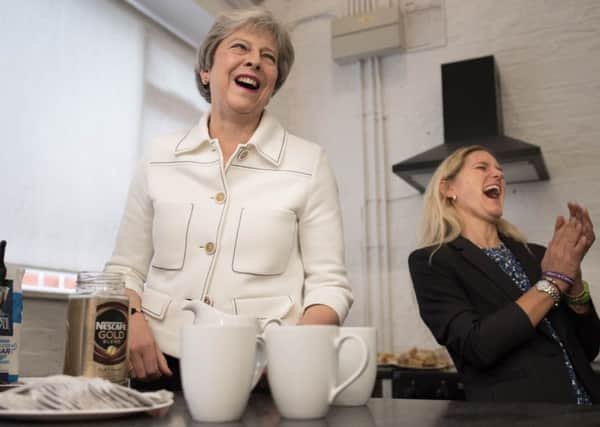Catherine Anderson: Jo Cox and The Yorkshire Post helped ensure loneliness is no longer hidden


Moreover, it is a narrative that has resulted in meaningful policy change – something that can be challenging to bring about at the best of times, let alone when the political bandwidth is crammed with other apparently more pressing issues.
Arguably, were it not for this newspaper’s campaign – launched five years ago to highlight the devastating impacts of loneliness and social isolation – we would not have the world’s first ever Minister for Loneliness, or the first ever governmental strategy on loneliness.
Advertisement
Hide AdAdvertisement
Hide Ad

Who would have thought that something so elusive and so intangible as a feeling could capture the imagination of both the country and the world, galvanising a deep desire to find tangible solutions?
In The Yorkshire Post’s own words, the epidemic of loneliness is a hidden one. Thankfully, it is no longer out of sight nor out of mind.
We have Jo Cox to thank for taking this issue to Westminster. One of her first acts after election (and announced in this very paper) was to establish the cross-party Commission on Loneliness, carried on after her murder.
Advertisement
Hide AdAdvertisement
Hide AdJo, we now know, was affected by feelings of loneliness when she left Yorkshire for university.
I’m sure that we can all empathise with the sense of isolation that many of us sometimes suffer, at times paradoxically amplified when we are in the midst of crowds. Jo recognised that this was a pervading ill, a condition that did not discriminate, and one affecting millions in the UK each year.
Throughout 2017, Jo’s Commission met and heard the testimony of many of those who had experienced or witnessed the impact of loneliness: young and old; the employed and the unemployed; children and parents; people with disabilities; carers; refugees; and many, many more.
Its findings and recommendations were published in the report Connect for a Kinder Tomorrow, to which the Prime Minister Theresa May responded positively. Soon after the first Minister for Loneliness, Tracey Crouch, was appointed, and a £20m fund of new investment was unlocked to support projects tackling loneliness. This work has since been taken on by Mims Davies.
Advertisement
Hide AdAdvertisement
Hide AdAs chief executive of the charity that builds a positive legacy for Jo, I think about her every single day.
I believe Jo understood well that there was no single clinical response to the hidden epidemic of loneliness – and that the solution, or part of it, lies in each and every one of us.
The manifold reasons for loneliness are all part of the way we live now, and point to the ways in which society is in danger of fragmenting – along lines of age, or social division, or political alienation, or communal breakdown.
Factors which in combination will, if unchecked, lead to a major public health crisis.
Advertisement
Hide AdAdvertisement
Hide AdTackling loneliness is about more than just medicine. While we need to address the obvious health issues – increased rates of depression, cardiovascular disease, dementia, high blood pressure, and so on – we need also to take a holistic approach as a society, answering difficult questions along the way.
How do we include people who feel most isolated? How can we encourage each other to be more mindful of those who are most vulnerable? How do we de-stigmatise loneliness, without losing any of the momentum of the campaign that Jo helped to turbo-charge?
Above all, how do we alleviate the pain that the most lonely and isolated feel? “I don’t want to look weak.” “I feel like a burden.” “It’s embarrassing.” “I feel as if no one cares.”
There are just some of the comments shared on a recent online survey around loneliness. Starkly, they show just how painful a condition this can be. Perhaps what we all need to do now is to follow Jo’s lead and, in simply acknowledging the issue and acknowledging people’s pain, make sure that this is an epidemic no longer hidden.
That, at least, is a major step forward in a very positive direction.
Catherine Anderson is CEO at The Jo Cox Foundation. She tweets via @CAnderson_UK.